Photographs: Vinay Joshi/Reuters
The Center for Preventive Action, established in 1994 by the United States council on foreign relations to prevent, defuse, or resolve deadly conflicts around the world to expand the body of knowledge on conflict prevention, has published a survey, identifying possible contingencies which have a likelihood to occur in 2013.
The information was collated by asking over 1,500 US government officials, academics, and forecasting experts to rank the likelihood and potential impact of the contingencies.
Since the partition of British India in 1947 and creation of India and Pakistan, the two countries have been involved in four wars, including one undeclared war, as well as many border skirmishes and military stand-offs. Also, India has repeatedly accused Pakistan of engaging in proxy wars by providing military and financial assistance to violent non-state actors.
Though, the nuclear conflict between both countries is of passive strategic nature with nuclear doctrine of Pakistan stating a first strike policy, although the strike would only be initiated if and only if, the Pakistan armed forces are unable to halt an invasion or a nuclear strike is launched against Pakistan, while India has a declared policy of no first use.
According to the survey, the chance of a severe India-Pakistan crisis, which carries the risk of military escalation, triggered by a terrorist attack is quite plausible.
The way things stand though, there seems to be no conclusion to the Mumbai attacks debate between India and Pakistan, which has been dragging on for four years now.
...
North Korean crisis
Image: An undated image released by South Korea's defence ministry in Seoul shows South Korean officers checking a piece of wreckage of North Korea's Unha-3 (Milky Way 3) rocket, at the agency of defense development in Daejeon, south of SeoulPhotographs: Reuters
North Korea on December 12 fired a long-range rocket in its second launch under its new leader, defying warnings from the United Nations and Washington.
North Korea claimed that the rocket was meant to put a satellite in orbit. A similar launch in April broke apart shortly after liftoff, and the condemnation that attempt received is likely to be repeated.
Most political analysts believe the launch is designed to bolster the credentials of new leader Kim Jong-un as he cements his rule over the country of 22 million people.
According to the survey, there is a plausible chance of a severe crisis caused by another military provocation, internal political instability, or threatening nuclear weapons related activities.
...
South China Sea confrontation
Image: The US navy supply ship USNS Rappahannock maintains station as it prepares a replenishment at sea in this US navy photo handout photo taken in the South China SeaPhotographs: MC3 Cale Hatch/US Navy/Handout/Reuters
At a time of domestic political transition, China is embroiled in a range of disputes with its neighbours. Conflict in the region has the potential to disrupt global trade flows. The South China Sea waterways carry around half of the world's total trade and are claimed in whole or part by China, the Philippines, Vietnam, Malaysia, Taiwan and Brunei.
Proven and undiscovered oil resources in the South China Sea are estimated to be as high as 213 billion barrels. Fears have been rising in Asia that China is seeking to use its growing maritime might to dominate not only the hydrocarbon-rich waters of the South China Sea but also its crucial shipping lanes, the lifeline of regional economies.
According to the survey, there is a plausible chance, of an armed confrontation over competing territorial claims.
...
Libya conflict
Image: Police stand in front of the security directorate after gun clashes between demonstrators and police in BenghaziPhotographs: Esam Al-Fetori/Reuters
As a result of the 2011 Libyan civil war, there are two entities claiming to the de jure governing authority of the country. The Tripoli-based National Transitional Council, led by Mustafa Abdul Jalil, controls most of the country and uses the short-form name Libya for the Libyan state, but has also on occasion referred to it in the long-form as the Libyan republic.
The remnants of the previous regime and its institutions, led by Muamma Gaddafi, refer to the Libyan state as the Great Socialist People's Libyan Arab Jamahiriya and are based in the city of Sirte. The United Nations recognises the National Transitional Council as the sole legal representative of the country.
In the post-conflict scenario, proliferation of weapons has emerged as a major problem posing threat to the stability in Libya as well as in the larger region.
According to the survey, there is a plausible chance of continuing political instability and emergence of a terrorist safe haven in Libya.
...
Sectarian violence in Syria
Image: Tripoli's sectarian makeup has made it a flashpoint within Lebanon where violence from Syria has sometimes spilled overPhotographs: Thaier al-Sudani/Reuters
Tripoli's sectarian makeup has made it a flashpoint within Lebanon where violence from Syria has sometimes spilled over.
The Syrian uprising is mostly being waged by Sunni Muslims and largely opposed by minorities such as Assad's own Alawite sect.
Tripoli is a majority Sunni city and mostly supports the uprising next door, but the coastal city has an Alawite minority and clashes have erupted several times since the revolt began.
According to the survey, renewed sectarian violence in Lebanon because of spillover from the conflict in Syria is polausible.
...
Slow reforms in Egypt
Image: A protester against Egyptian President Mohamed Mursi wears a mask with the colours of Egypt's national flag and a headband at Tahrir Square in CairoPhotographs: Amr Abdallah Dalsh/Reuters
A large number of Egyptians are disappointed at the slow pace of reforms since the fall of Mubarak. There is a deep sense of hurt that the new military administration is unresponsive to their demands, and both their action and inaction on a number of issues show them to be more aligned with the Mubarak regime than with the people.
The new rulers are denying this, but their words haven't consoled the people. Protesters have taken to the streets several times calling for immediate implementation of reforms.
According to the report, this could lead to even more unrest in the region.
...
Cuba after Castro
Image: Former Cuban leader Fidel Castro waves in Havana in this picture released by Cuban website CubadebatePhotographs: Cubadebate/Reuters
The situation in Cuba is tenuous, considering the strained political, social, and economic conditions, and worsened by questions about Castro's health.
The scenarios are based on either the death, overthrow or attempt to overthrow Castro, and the possible turmoil that could ensue following any of these events. It has the greatest potential for violence, inviting outside intervention, and causing a mass exodus of illegal immigrants or refugees to the United States.
It can also be caused by the transfer of power to Castro's designated successor (i.e. brother Raul), to the assumption of power of some other Cuban political force and the establishment of a new form or transition government.
Iranian nuclear crisis
Image: Iranian President Mahmoud AhmedinejadIran was in the news a few months ago as the most threatening and important country in the world to the US and Israel. Also, the fact that President Mahmoud Ahmedinejad is also one of the most outspoken Holocaust deniers and the Iranian has close ties with three Western-classified terrorist groups: the Hamas and Islamic Jihad in Gaza, and Hezbollah in Lebanon does not go in its favour.
According to the survey, there is a plausible chance of crisis caused by a surprise advance in Iran's nuclear weapons delivery capability, followed by an Israeli response.

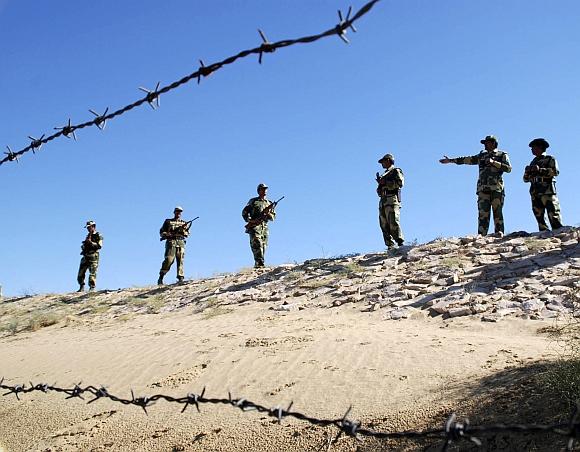
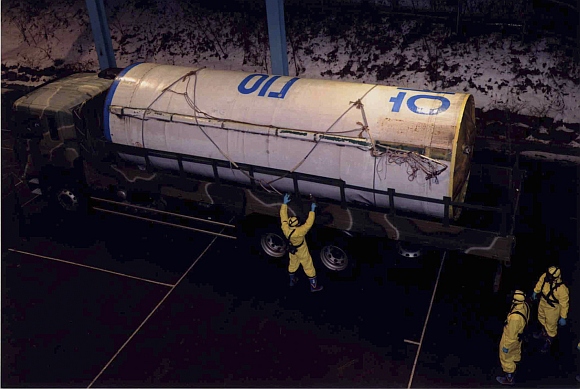
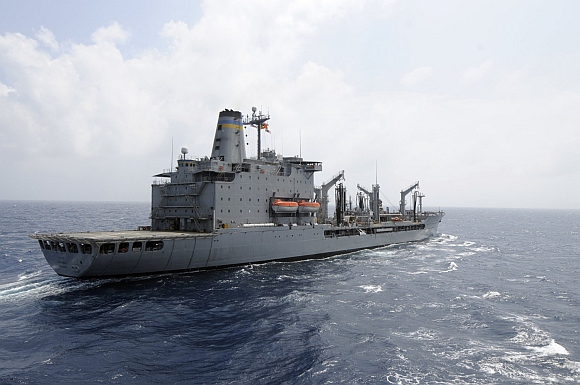
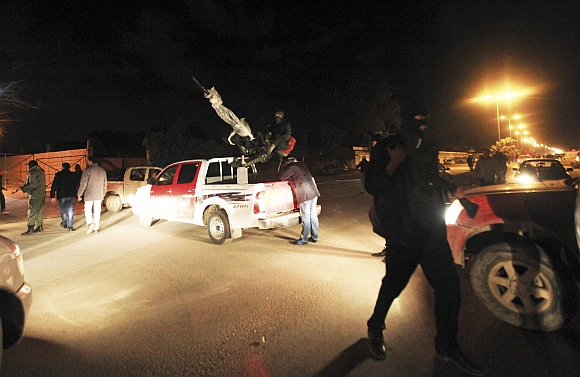
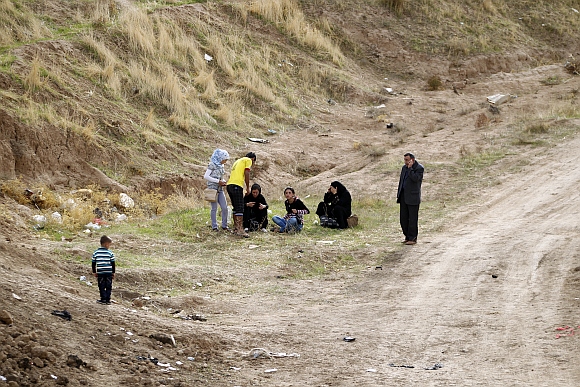
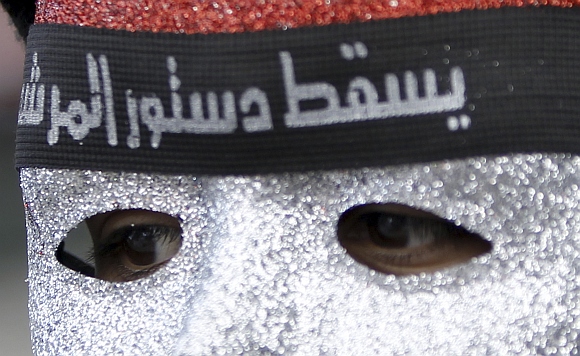

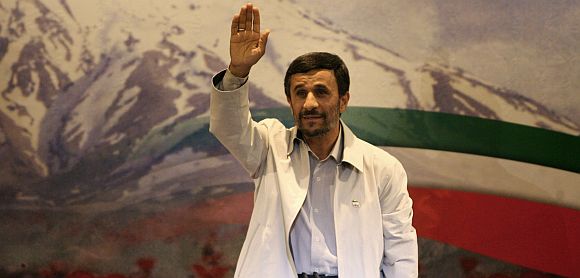
article